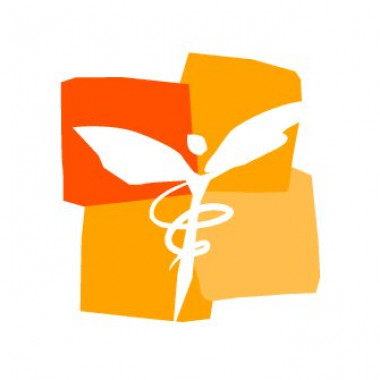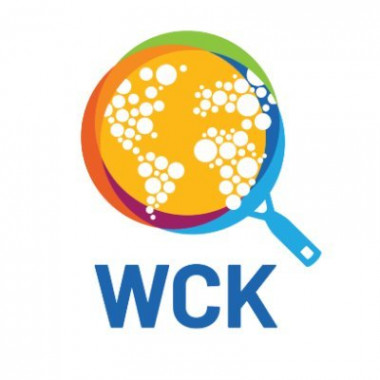CharityWatch announces a list of legitimate, efficient, and accountable charities involved in efforts to aid and assist the people of Israel – Palestine during active conflict in the region.
On Saturday, October 7th, 2023, Hamas launched a surprise attack on Israel by launching thousands of rockets followed shortly after by militants crossing into Israel by sea, air, and land. Hamas infiltrated multiple Israeli towns capturing both civilians and military personnel. Israel responded with rocket strikes of their own targeting the blockaded Gaza Strip. It is estimated as of October 18, 2023, 3000-6000 have been killed and 7000-12000 have been wounded as a result of the conflict. Additionally, more than 1 million people have fled their homes after Israel's warning to evacuate Gaza City. Now, approximately 60% of Gaza City's population occupies an 8 mile long stretch of land south of the evacuation zone awaiting their opportunity to return home.
People suffering as a result of the Israel-Hamas war desperately need humanitarian assistance.
Unscrupulous charities will sometimes use disasters as a money grab to raise funds for unrelated causes. CharityWatch does not add just any charity to our disaster alerts. We sort through the marketing fluff of charities to find out what specific aid is being provided to victims before adding an organization to our list. This list will be updated as new information becomes available.
The charities listed below are Top-Rated by CharityWatch for spending at least 75% of their cash budgets on programs; for maintaining fundraising efficiency of $25 or less to raise each $100 in cash donations; and for meeting CharityWatch’s governance & transparency benchmarks.

Doctors Without Borders/MSF is donating medical supplies to hospitals and health facilities in Gaza to respond to medical needs. MSF does not run medical programs in Israel, which has strong emergency and health services. MSF has been running medical programs in Gaza for more than 20 years, supporting a health care system that urgently lacks both medical personnel and supplies. Their teams work in three hospitals and several outpatient clinics, offering comprehensive care for people suffering from burns and trauma. Since 2018, MSF has been running a reconstructive surgery program in northern Gaza. They also operate several medical programs in the West Bank.

Anera, which has no political or religious affiliation, works on the ground with partners in Palestine mobilizing immediate emergency relief. Anera has already delivered 12,000 bags of IV solutions to Gaza’s largest hospital. In the coming days they will distribute food parcels, water, and hygiene kits to displaced families.

Americares has deployed logistics experts to Egypt to participate in coordination meetings and facilitate shipments across the Rafah border to Gaza in hopes additional aid will be allowed through. They have prepared a shipment of essential medical supplies designed to treat upwards of 100,000 people which includes surgical supplies, bandages, antibiotics and other medicines for chronic health conditions. Additionally, Americares is providing funding to other organizations on this list currently providing aid and have been since the beginning of the conflict (Anera & HIAS).

Muslim Aid USA is actively responding to this humanitarian crisis, working alongside their partners on the ground. They are delivering essential medical aid and equipment to the main hospitals in Gaza. They are also providing food packages and vital non-food items such as hygiene kits and other necessities to those who are in need.

The American Jewish Joint Distribution Committee has activated their emergency response team and protocols across Israel. In the south of the country, they have widespread, existing operations and programs providing support to those directly impacted by the conflict, including elderly, people with disabilities, children and families at risk.

Hadassah hospitals in Israel and its medical teams are currently providing crisis medicine and trauma-care to those impacted by the on-going conflict.

Zakat Foundation of America has been on the ground in this volatile area for over 20 years. Alongside local partners they work to provide both long-term (education, health and food sustainability) and short-term aid. Zakat has stated that it is supplying emergency relief, including: medical supplies, hygiene kits, food, warm blankets and clothing.

Direct Relief has committed funds to the Ashkelon Foundation, a nonprofit located in southern Israel. The foundation supports the Barzilai Medical Center which received approximately 300 patients the first day of the attack. Direct Relief is also working with other health-focused nonprofits in Israel to assess the need for additional aid.

Episcopal Relief & Development is working with Al Ahli Hospital, a ministry of the Episcopal Diocese of Jerusalem, to provide emergency support for those affected in Gaza. Al Ahli Hospital, with the support of Episcopal Relief & Development, is actively recruiting emergency staff and gathering essential supplies including medicines, ICU equipment, fuel and food.

HIAS has been operating in Israel since 1950. Within 24 hours of the initial conflict, HIAS activated its Emergency Response protocols to provide life-saving support to those displaced. Their core emergency capabilities include hygiene supplies, blankets, dignity kits, mental health and psychological support, and child protection.

Samaritan’s Purse specializes in international disaster relief, meeting critical needs for victims of conflict, disaster, famine, and epidemics throughout the world, often working with ministry partners on the ground. They have deployed a Disaster Assistance Response Team to Israel to support local partners bringing relief to those in need after the recent attacks. This assistance includes providing hot meals and other necessities.

Mercy Corps has operated in the West Bank and Gaza since 1986, providing humanitarian support including access to water, working with children and young people, and connecting people to economic opportunities. Mercy Corps currently has people on the ground assessing the needs of those impacted by the conflict and will resume their lifesaving programs when it is safe to do so.

Oxfam-America has been working in the Occupied Palestinian Territory and Israel since the 1950s and established its only country office in the area in the 1980s. In total they work with 28 partner organizations to offer lifesaving support including: rebuilding water and sanitation infrastructure, hygiene kits, distributing cash, food and bedding. Oxfam is in discussion with partners on how to begin their humanitarian response once it is safe to do so.

United States Fund for UNICEF has been operating in Gaza since the 1980’s. They have provided water treatment reagent to sustain the UNICEF-supported desalination plant providing water for 75,000 people. Also, they have released medical supplies to hospitals in the Gaza Strip including medicines for at least 1,600 people amidst the escalating hostilities.

World Central Kitchen has arrived in the region with their relief team and is currently forming a network of connections discovering new avenues to provide critical support. They are working with ANERA, a local organization, which they have partnered with in the past to prepare food kits and distribute them to families in the region. WCK teams are also set up in bordering countries should they see large numbers of refugees fleeing the area entirely.

Project HOPE has
deployed emergency response personnel to the region to address urgent needs in
Israel and Egypt. The Staff are also coordinating with local authorities, UN
agencies, and civil society to coordinate the delivery of aid for both Israel
and Gaza.
Donors Beware
Scammers will exploit your feelings of empathy and compassion during times of crisis as a means of siphoning donations away from legitimate charities and in their own pockets. Read CharityWatch’s advice for avoiding charity frauds and scams:
5 Tips For Avoiding Charity Frauds & Scams
10 Tips For Giving In a Crisis
How "Psychic Numbing" Stops Us From Giving
Crowdfunding: The Wild West of Charitable Giving
ATTENTION: The charities listed in this alert were Top-Rated by CharityWatch at the time of its publication. CharityWatch updates our ratings throughout the year. To see if a particular charity is currently Top-Rated, please click on its name, below.
















